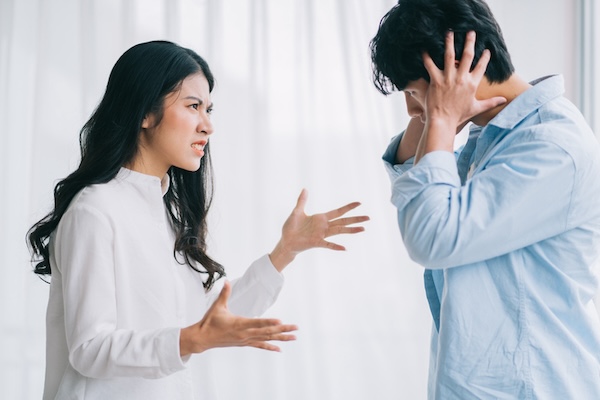Reactivity in Relationships: Overt and Covert
By Dr. Margaret PaulMarch 17, 2024
How do you react when someone is treating you in a way you don't like? Are your reactions making you feel good or bad?
 How do you usually react when someone is blaming you, criticizing or judging you, being irritated with you, yelling at you, withdrawing from you, or resisting you?
How do you usually react when someone is blaming you, criticizing or judging you, being irritated with you, yelling at you, withdrawing from you, or resisting you?
There are two forms of reaction from the wounded self: overt and covert. Both forms come from the intent to control. Both overt and covert reactivity are intended to get the other person to change through some form of teaching, punishment or guilting. The wounded self often says, "This person is behaving in a way that is unacceptable to me, and I cannot allow him or her to get away with this. I have to teach them a lesson, so they won't continue to treat me this way." The wounded self is convinced that trying to get the other person to change with teaching, guilting, or punishing is taking care of yourself. In reality, you cannot be trying to control someone else and be taking care of yourself in the same moment.
Overt Reactivity
Overt reactivity is anything you say out loud to control the other person. This includes:
- Any form of criticism, judgment, or a parental tone of voice
- Any form of blame, including telling your feelings with the intent of making the other person responsible for them
- Arguing, explaining, defending, and teaching
- Whining, crying
- Threatening, yelling
Overt reactivity also includes any overt violent action, such as throwing things or hitting.
When we are reacting overtly, we hope that by intimidating, punishing, guilting, or teaching, we can get the other person to change and be the way we want them to be or think they should be.
Covert Reactivity
Covert reactivity is when you don't overtly say or do anything, but in your head you are judging, blaming, and condemning the other person. You are punishing the other person by withdrawing your love or attention. Your wounded self is muttering things like, "What a jerk. I'll show her she can't treat me this way. I won't speak to her for two days. That will teach her a lesson." You have convinced yourself that if you withdraw love or attention, the other person will recognize the error of their ways and change.
Even though you are not saying anything, the other person picks up the energy of your blame and may further react with their anger, blame or withdrawal.
There are two main problems with either form of reactivity:
1. They don't work. They don’t make the other person change. In fact, they generally create the opposite of what you want. Instead of changing, the other person feels controlled or rejected by you and then responds with his or her own overt or covert form of reactivity. This creates a very negative circle where both people feel wronged and are trying to get the other person to see what he or she has done that is causing the problems.
2. Overt and covert negative reactions end up making you feel awful. Anytime you react from your wounded self, you will feel badly. Your bad feelings are letting you know that your thoughts and behavior are not in your highest good - not in alignment with your essence. While the wounded self believes that you have to teach the other person a lesson and not let them get away with their wounded behavior, responding with your own wounded behavior feels terrible and only perpetuates the problem for both of you.
What to Do When Someone Is Treating You Badly – Respond Rather than React
When your intent is to take loving care of yourself, you will be able to respond instead of reacting. You will be able to disengage without blame. One way of doing this is to step away. Quietly humming a happy song to yourself as you walk away from a negative interaction may help. When your intent is to take care of yourself rather than control the other person, you can disengage without taking anything personally and without trying to get the other person to change. When you do this, you will feel peaceful, regardless of how the other person is acting, and the other person will be stuck with his or her own bad feelings. The other person will be much more likely to take responsibility for their feelings and behavior when you are taking loving care of yourself.
Practicing non-reactivity is taking loving action!
Heal your relationships with Dr. Margaret’s 30-Day online video relationship course: Wildly, Deeply, Joyously in Love.
 Send this article to a friend
Send this article to a friend  Print this article
Print this article  Bookmarked 0 time(s)
Bookmarked 0 time(s)
| Related Articles |
|---|
| Verbal Abuse, Emotional Abuse - Overt and Covert |
| Non-Reactivity - A Major Key to Relationship Health |
Comments
| Author | Comment | Date |
|---|---|---|
| Join the Inner Bonding Community to add your comment to articles and see the comments of others... | ||

Daily Inspiration
To be an intellect, you must have proof, reason and logic. To be your own self denies proof, reason and logic. So the choice is to spend life proving what you wish to exist or to simply accept what you feel.
By Dr. Erika Chopich

 Share with Del.icio.us
Share with Del.icio.us Share with Digg
Share with Digg







